Jerusalem
Copyright: DeltaOFF/Shutterstock.comJerusalem
Jerusalem, where history and spirituality converge, contains sacred sites central to world religions. The kaleidoscope of cultures results from the Jewish, Christian, Muslim and Armenian communities. Experience a vibrant music scene and diverse cuisine, while the Light Festival and Jerusalem Film Festival provide cultural events. The city's spiritual aura and beauty are evident in its mosaics, architecture, and views from the Mount of Olives. A trip to Jerusalem is sure to leave a lasting impression.The City
Whether you're trying to grasp its history, contemplate its spirituality, or understand its different cultures, experiencing Jerusalem is a fascinating undertaking. The Old City is Jerusalem's most popular attraction, with an array of religious and historical buildings. However, don't miss the newer districts that started spreading in the 1860s — start with the quarters of Mishkenot Sha'ananim and Nahalat Shiva. For fashion, novelties, and nightlife, head to the Downtown triangle, between Jaffa Road, King George Street, and Ben Yehuda Street. But be sure to explore further: you will find a bustling cultural scene and lively entertainment throughout the city. A wild, dusty natural landscape surrounds the urban area. The history of Jerusalem is restless and runs through thousands of years. The Canaanite population settled in the area 6,000+ years ago, near the Gihon Spring. After biblical king David conquered the city, his successor Solomon built a legendary Temple — the shrine was the most sacred place for Jewish people, who developed a strong and tormented connection with the land. Jerusalem then became part of the Roman empire through a dramatic conquest. The Temple was definitively destroyed in 70 AD during a brutal repression by the emperor Titus. The site of Jesus Christ's death and alleged resurrection, Jerusalem saw the birth of a new religion; it was also the site of an important spiritual journey for Muhammad, the founder of Islam. During the Crusades and Middle Ages, Jerusalem played a significant role in the region's history, with important orders like the Templar Knights founded there. Since the State of Israel was proclaimed in 1947, a tortuous conflict between the state and the city's previous inhabitants has divided its people.Old City
One of the most ancient parts of Jerusalem, the Old City teems with Jewish, Christian and Muslim believers, and it's a must-see for everyone. It was built in the 2nd century AD by the Roman Emperor Hadrian, who called it Aelia Capitolina. The emperor intended it to be a pagan city with a forum and a temple to Jupiter. However, its shape changed continuously throughout the years, while religious shrines were established inside. In 1538, the Ottomans built a wall around it. Listed below is a selection of the unmissable sights within the Old City limits and a short guide to the four quarters it is divided into, all of which are worth exploring. At local markets, you will find a wide range of typical objects and exciting rarities. Come early in the morning to avoid, or at least precede, the perennial crowds of tourists. Opening times for Temple Mount sights are very specific, so it's better to arrive on time. A popular place to enter is the Jaffa Gate on the eastern part of the Walls, made from imposing hewn stones.Do & See
With spiritual milestones and millennia-old landmarks around every corner, Jerusalem is a labyrinth of things to do for sightseeing enthusiasts — exciting, but easily overwhelming. Below is a selection museums, places of worship, archaeological sites, and excursion ideas.
Dining
Jerusalem has been a melting pot of cultures for millennia, which is reflected in its cuisine that boasts an exciting variety of specialities — your culinary experience here will be one to remember. In the city, local, Middle Eastern and Mediterranean dishes mix with Jewish tradition brought back from around the world: Israeli Jewish Fusion Cuisine has been a thing since the 1970s. "Mizrahi", Middle-Eastern Jewish cuisine, is similar to the Arab one, focusing on rice, roasted meat, salads and stuffed vegetables. Along with the obvious falafel, hummus, pita and couscous, try Middle-Eastern dishes like mujaddara (a typical Israeli rice dish), shakshuka (poached eggs, fried onion and peppers), local variations of shawarma (the Arab name of kebab), and spicy sauces (skhug, amba and pilpelchuma). When Ashkenazi Jews came back from central Europe, they brought schnitzel, Russian salad and cholent, a beef stew for Shabbat; Sephardi Jews from the Balkans introduced yogurt and Turkish dishes. Most distinctively, Jews prepare food according to the religious rules of the Kosher tradition. Jerusalem is also an ideal spot for vegans and vegetarians: many traditional dishes are plant-based, and 13% of Israelis were vegetarian or vegan in 2015 according to a poll by Globe. With such a variety of options, you just can't go wrong.
Cafes
Coffee culture in Jerusalem is well established: European expats have imported the cosy, relaxed Viennese-style coffee houses, and you'll find plenty of atmospheric places to take a break, have a chat, and possibly mingle with locals. Along with espressos and iced coffees, cafes often serve Turkish coffee: it is prepared by pouring boiling water over fine-ground coffee beans, and often flavoured with cardamom. Tea is another favourite that comes in a variety of flavours and brews. Other typical drinks are lemonana, made from fresh lemons and mint, and sahlab, prepared with cornstarch, topped with cinnamon or pistachio, and commonly drunk in winter. Make sure to try some typical pastries as well: kugel pudding, Ashkenazi babka (a sweet yeast pie), and bourekas (filled pastries from Eastern Europe).
Bars & Nightlife
Jerusalem's nightlife may not be as big and loud as Tel Aviv's, but there are still plenty of hidden gems to discover. The atmosphere is informal and relaxed, with lively student bars featuring pop and alternative music, as well as traditional European-style pubs and bars. Social hotspots can be found on Ben Yehuda Street, King David Street, Mahane Yehuda Market, and at First Station. Nightlife starts late, with people usually gathering after midnight. Jerusalem's music scene is brilliant and renowned, with performances ranging from street musicians to concerts in prestigious venues. For cinema enthusiasts, there are also good options available. The Israel Museum and the Bible Lands Museum often organize cultural events, and the Jerusalem Season of Culture held every summer features a wide range of proposals. A monthly calendar of events is available at the Tourist Information Office.
Shopping
Typical art, craftwork and souvenirs can be found in the touristic areas of the Old City and the Mahane Yehuda Market, as well as the Downtown triangle — especially Ben Yehuda Street. Look for clothing, jewellery, local pottery (the Armenian tradition is particularly beautiful), Palestinian embroidery, and so on. Of course, there's plenty of religious craft work from different faiths: along with crucifixes and nativities, you'll find menorahs (typical seven-branched Hebrew lamps), mezuzahs (parchments with verses from the Torah), and Judaica (Jewish ceremonial art). Nearby King David Street hosts a plethora of art galleries exhibiting works by local talents, many of which graduated from Jerusalem's Bezalel Academy of Arts and Design. The Hutzot Hayotzer Artists Colony is another good spot for visual artwork. Those into fashion should head to Bezalel Street and Shatz Street, where they will find the best of Israeli design and international galleries. The Mamilla Avenue, between the Old City and the Downtown area, is a well-furnished shopping centre. Prices can vary from shop to shop and, since most sellers don't accept returns, it's better to compare prices before buying an item. Bargaining — in a polite way — is a common practice at most tourist shops.

 Copyright: Godot13 / Wikimedia Commons
Copyright: Godot13 / Wikimedia Commons
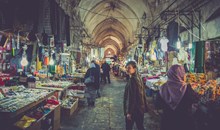 Copyright: illpaxphotomatic / Shutterstock.com
Copyright: illpaxphotomatic / Shutterstock.com
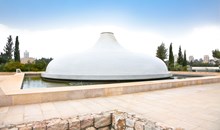 Copyright: Aleksandar Todorovic / Shutterstock.com
Copyright: Aleksandar Todorovic / Shutterstock.com
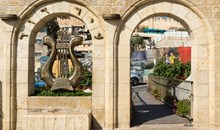 Copyright: Sopotnicki / Shutterstock.com
Copyright: Sopotnicki / Shutterstock.com
 Copyright: Monkey Business Images / Shutterstock.com
Copyright: Monkey Business Images / Shutterstock.com
 Copyright: Africa Studio / Shutterstock.com
Copyright: Africa Studio / Shutterstock.com
 Copyright: ismel leal pichs / Shutterstock.com
Copyright: ismel leal pichs / Shutterstock.com
 Copyright: Walters Art Museum/public domain/Wikimedia
Copyright: Walters Art Museum/public domain/Wikimedia
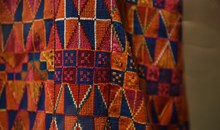 Copyright: Yacoub Rabah / Shutterstock.com
Copyright: Yacoub Rabah / Shutterstock.com
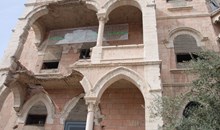 Copyright: Raphie Etgar / Wikimedia Commons
Copyright: Raphie Etgar / Wikimedia Commons
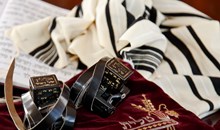 Copyright: MstudioG / Shutterstock.com
Copyright: MstudioG / Shutterstock.com
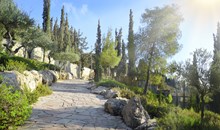 Copyright: ArtMari / Shutterstock.com
Copyright: ArtMari / Shutterstock.com
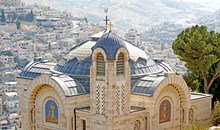 Copyright: Dennis Jarvis/cc by-sa 2.0/Flickr
Copyright: Dennis Jarvis/cc by-sa 2.0/Flickr
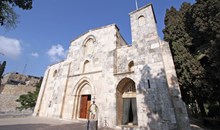 Copyright: Zvonimir Atletic / Shutterstock.com
Copyright: Zvonimir Atletic / Shutterstock.com
 Copyright: Rostislav Glinsky / Shutterstock.com
Copyright: Rostislav Glinsky / Shutterstock.com
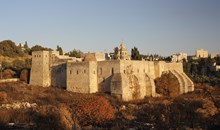 Copyright: Alon Adika / Shutterstock.com
Copyright: Alon Adika / Shutterstock.com
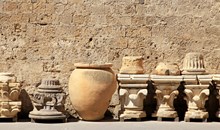 Copyright: InnaFelker / Shutterstock.com
Copyright: InnaFelker / Shutterstock.com
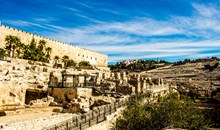 Copyright: Dmitry Rozental / Shutterstock.com
Copyright: Dmitry Rozental / Shutterstock.com
 Copyright: Mathias Appel/public domain/Flickr
Copyright: Mathias Appel/public domain/Flickr
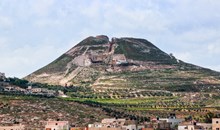 Copyright: Dmitriy Feldman svarshik / Shutterstock.com
Copyright: Dmitriy Feldman svarshik / Shutterstock.com
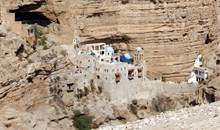 Copyright: Ester Inbar/Wikimedia
Copyright: Ester Inbar/Wikimedia
 Copyright: Alon Adika / Shutterstock.com
Copyright: Alon Adika / Shutterstock.com
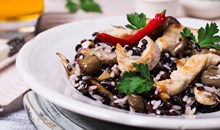 Copyright: ziashusha / Shutterstock.com
Copyright: ziashusha / Shutterstock.com
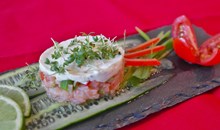 Copyright: PxHere.com
Copyright: PxHere.com
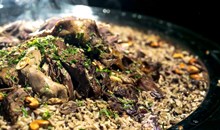 Copyright: Mazen Said / Shutterstock.com
Copyright: Mazen Said / Shutterstock.com
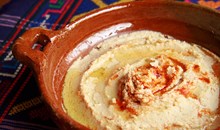 Copyright: Marco Verch / Flickr.com
Copyright: Marco Verch / Flickr.com
 Copyright: anokarina / Flickr.com
Copyright: anokarina / Flickr.com
 Copyright: Bruce Matsunaga / Flickr.com
Copyright: Bruce Matsunaga / Flickr.com
 Copyright: Hungry Dudes / Flickr.com
Copyright: Hungry Dudes / Flickr.com
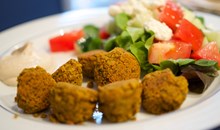 Copyright: Austin Kirk / Flickr.com
Copyright: Austin Kirk / Flickr.com
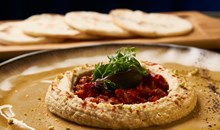 Copyright: Gecko Studio / Shutterstock
Copyright: Gecko Studio / Shutterstock
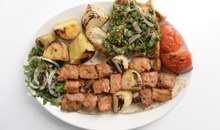 Copyright: neildodhia / Shutterstock.com
Copyright: neildodhia / Shutterstock.com
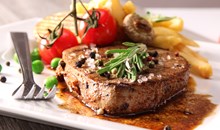 Copyright: Lukas Gojda / Shutterstock.com
Copyright: Lukas Gojda / Shutterstock.com
 Copyright: Elena Veselova / Shutterstock.com
Copyright: Elena Veselova / Shutterstock.com
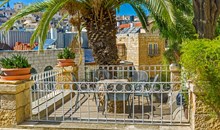 Copyright: eFesenko / Shutterstock.com
Copyright: eFesenko / Shutterstock.com
 Copyright: Zivica Kerkez / Shutterstock.com
Copyright: Zivica Kerkez / Shutterstock.com
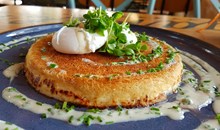 Copyright: Alexander Turovsky / Shutterstock.com
Copyright: Alexander Turovsky / Shutterstock.com
 Copyright: Pexels / Pixabay.com
Copyright: Pexels / Pixabay.com
 Copyright: JOAT / Shutterstock.com
Copyright: JOAT / Shutterstock.com
 Copyright: Syda Productions / Shutterstock.com
Copyright: Syda Productions / Shutterstock.com
 Copyright: Fer Gregory / Shutterstock.com
Copyright: Fer Gregory / Shutterstock.com
 Copyright: PopTika / Shutterstock.com
Copyright: PopTika / Shutterstock.com
 Copyright: Rawpixel.com / Pexels.com
Copyright: Rawpixel.com / Pexels.com
 Copyright: Free-Photos / Pixabay.com
Copyright: Free-Photos / Pixabay.com
 Copyright: Skitterphoto / Pexels.com
Copyright: Skitterphoto / Pexels.com
 Copyright: Bru-nO / Pixabay.com
Copyright: Bru-nO / Pixabay.com
 Copyright: 375395 / Pixabay.com
Copyright: 375395 / Pixabay.com
 Copyright: Maxim Blinkov / Shutterstock.com
Copyright: Maxim Blinkov / Shutterstock.com
 Copyright: Pressmaster / Shutterstock.com
Copyright: Pressmaster / Shutterstock.com
 Copyright: fizzone / Shutterstock.com
Copyright: fizzone / Shutterstock.com
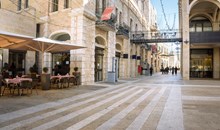 Copyright: Dmitry Polonskiy / Shutterstock.com
Copyright: Dmitry Polonskiy / Shutterstock.com
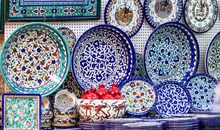 Copyright: maratr / Shutterstock.com
Copyright: maratr / Shutterstock.com
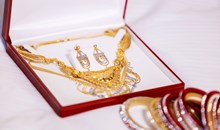 Copyright: Syed Ali Ashraf / Shutterstock.com
Copyright: Syed Ali Ashraf / Shutterstock.com
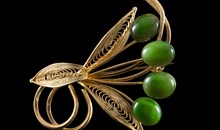 Copyright: Kim Diaz / Shutterstock.com
Copyright: Kim Diaz / Shutterstock.com
 Copyright: TalaZeitawi / Shutterstock.com
Copyright: TalaZeitawi / Shutterstock.com
 Copyright: Creative Lab / Shutterstock.com
Copyright: Creative Lab / Shutterstock.com
 Copyright: Africa Studio / Shutterstock.com
Copyright: Africa Studio / Shutterstock.com
 Copyright: nd3000 / Shutterstock.com
Copyright: nd3000 / Shutterstock.com
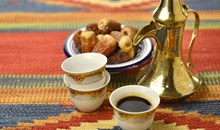 Copyright: JOAT / Shutterstock.com
Copyright: JOAT / Shutterstock.com
 Copyright: MorningbirdPhoto / Pixabay.com
Copyright: MorningbirdPhoto / Pixabay.com
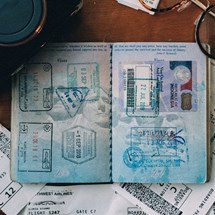 Copyright: ConvertKit/unsplash
Copyright: ConvertKit/unsplash
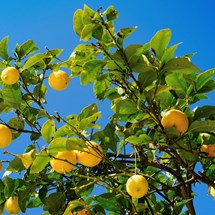 Copyright: Dan Gold/unsplash
Copyright: Dan Gold/unsplash
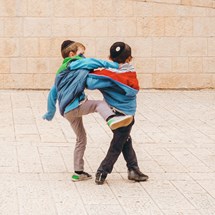 Copyright: Cristina Gottardi/unsplash
Copyright: Cristina Gottardi/unsplash
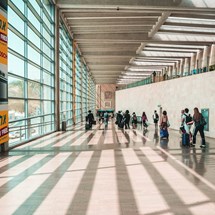 Copyright: Joseph Barrientos/unsplash
Copyright: Joseph Barrientos/unsplash
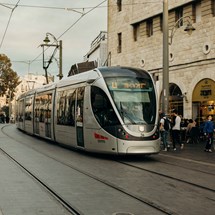 Copyright: Laura Siegal/unsplash
Copyright: Laura Siegal/unsplash
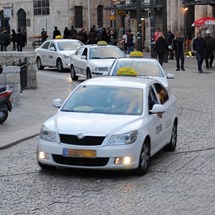 Copyright: Paulina Zet - Vered Hasharon/cc by-sa 2.0/wikimedia (cropped)
Copyright: Paulina Zet - Vered Hasharon/cc by-sa 2.0/wikimedia (cropped)
 Copyright: Simona Sergi/unsplash
Copyright: Simona Sergi/unsplash
 Copyright: Good Faces/unsplash
Copyright: Good Faces/unsplash
 Copyright: Priscilla Du Preez/unsplash
Copyright: Priscilla Du Preez/unsplash
 Copyright: Neven Krcmarek/unsplash
Copyright: Neven Krcmarek/unsplash